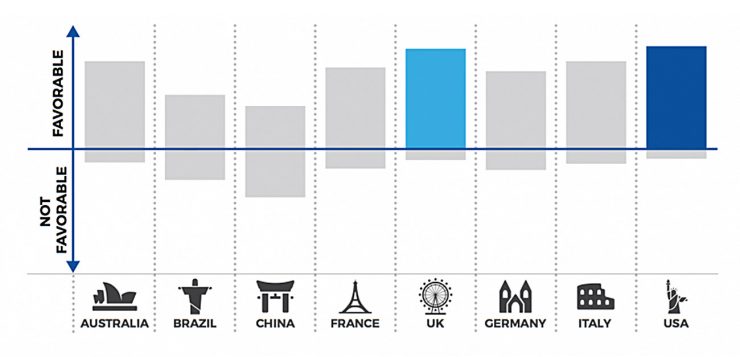Source: thepienews.com
The desire to explore other cultures is the main driver for high-school aged students to consider studying abroad, according to new research from AFS Intercultural Programs.
In a report, Mapping Generation Z: Attitudes toward International Education Programs, AFS also found that anglophone destinations are the most popular among this generation.
The research surveyed 5,255 high school students aged between 13 and 18 from 27 countries between March and December 2016.
“Gen Z students don’t just want to simply travel to other countries”
Around two thirds (67%) of respondents placed a higher value on cultural experiences when studying overseas than scholastics and education, it found.
Daniel Obst, president and CEO of AFS, said it is clear that Generation Z is more keen to add ‘global’ to their identity than previous generations.
“Gen Z students don’t just want to simply travel to other countries; they are looking for authentic experiences through the eyes of local people,” he told The PIE News.
Students with a primary focus on cultural experiences, but with low financial resources, dubbed ‘cultural hitchhikers’ by the report, made up 36% of respondents.
‘Cultural floaters’, or the students with high financial resources and who aim to experience other cultures, accounted for 31% of respondents.
Breaking down survey responses by nationality, three quarters of European students valued cultural exploration more than academics, along with 57% of students from Latin America, 58% from Southeast Asia and 72% from North America.
Meanwhile, 21% of respondents were considered ‘academic achievers’, students who place a high primary focus on scholastics, but have low financial resources, while ‘resumé packers’, those with high financial resources and a high interest in educational achievement, accounted for the lowest proportion, 12%.
“I expect we will see more resumé packers in the future as students at a younger age become more aware – from their schools, parents and future employers – of the value of international experiences and global competence to achieve future success,” said Obst.
Top destinations reflected leaders in HE study abroad; anglophone countries were considered the most attractive to 77% of Generation Z, with the US, UK and Australia most preferred.
Western European countries, including Germany, France and Italy, were favourable to 65%, with Brazil and China faring the least favourably, pointed to by only 38% of respondents.
“These findings paint a picture of large growth potential for the traditionally popular English destinations and set the tone for increasing competitive pressures among them,” notes the report.
“These findings paint a picture of large growth potential for the traditionally popular English destinations”
Security issues topped the list of personal concerns for study abroad. During the survey’s first months before May 2016, security concerns were only an anxiety for 36% of students. But that proportion increased in the period after.
“During the months after repeated terrorist attacks became highly publicised worldwide, we noted a concern rate of 52% for the same issue,” the report states.
Making no friends was a concern for half of the respondents, followed by homesickness, and school re-entry requirements upon returning home, each shared by 48% of students.
While none of the respondents had been on an international exchange previously, 60% said they had already considered the possibility.
In order to harness that interest into more students studying overseas, word of mouth will be essential, according to Hristo Banov, manager of the management information unit at AFS, and the study’s lead researcher.
“While nowadays students get personal testimonials not just from their immediate friends and family circles, but also from their extended social media footprint, the relevance of ‘genuine, personal referral’ remains unchanged,” he said.







